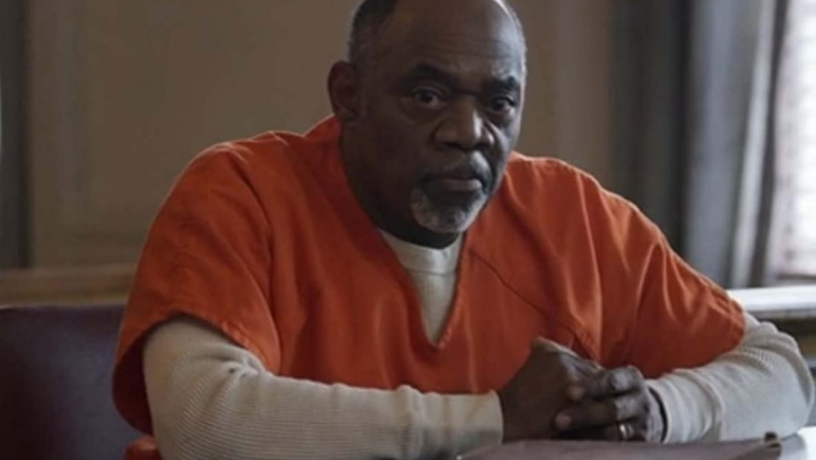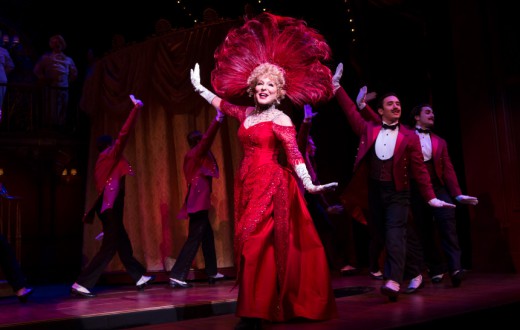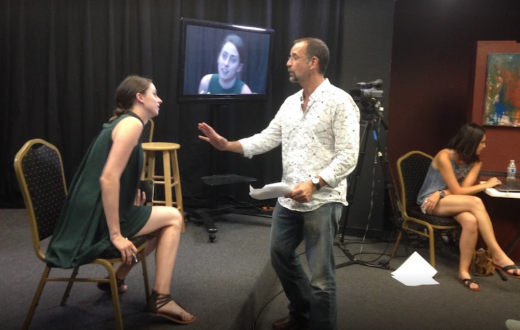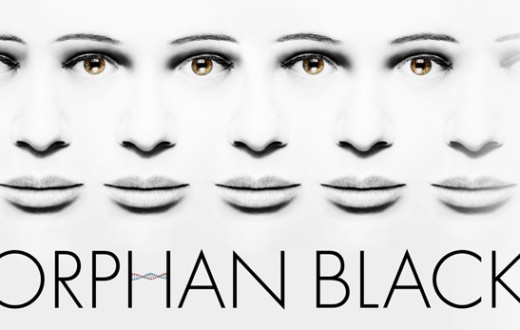Where can I start with Gregg Daniel, an actor and director who has done it all?
Currently, Gregg portrays Easley Barton in 50 Cent’s For Life, which is about a prisoner who becomes a lawyer litigating cases for other inmates while fighting to overturn his own life sentence for a crime he didn’t commit. His character makes a strong statement.
Gregg’s background stems from New York, where he attended the prestigious NYU’s Tisch School of the Arts. Soon after he was whisked off to Massachusetts for an entire summer run at the Williamstown Theatre Festival.
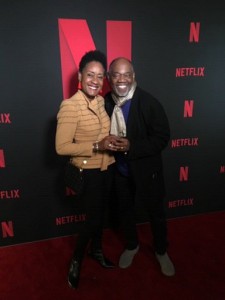
You’ll also recognize Gregg Daniel from screen productions such as Spider-Man 3, Star Trek: Voyager and more recently on Netflix’s I Am Not Okay with This.
Having such diversity as performing and directing in theater, film and television, Gregg Daniel gives us a breakdown of his audition for For Life, how to have fun while being serious in show business and why he’s so happy he didn’t have to take his clothes off for True Blood!
You can currently be seen on ABC’s 50 Cent’s For Life where you portray “Easley Barton”, a sad, weathered, beaten down inmate who’s imprisoned for 22 years for a crime he never committed. Did you audition for this role?
I did a self tape audition for the role of Easley Barton. I was working in Los Angeles at the time and “For Life” was shooting in various locations in New York. As soon as I received the audition material, I knew I wanted to do the role. The scenes were written with such sensitivity, clarity and intelligence. While I knew the character was, as you say “weathered” and “beaten down,” I sensed there was a kind of dignity about Easley which I intended to bring to the audition. Remember the character was unjustly convicted, therefore he truly is an innocent man. Of course, he’s disappointed, even bitter at wasting 22 years of his life behind bars. But I didn’t want to exhibit only anger at the audition. I wanted to bring a certain grace and strength I believed Easley possessed. There’s nothing particularly interesting about watching someone who is a mass of anger, someone who has no hope. However, when the possibility of a new trail is introduced to Easley or even the fact that the series lead, Aaron Wallace believes in his innocence, it rekindles something deep inside Easley — the possibility of freedom.
I have an audition taping service I use when I feel the role is very unique or special, otherwise I’ll self tape on my iPhone at home. By using a taping service, I don’t have to worry about lighting or framing, etc. I’ve gotten pretty good with self tape auditions at home, however when I really want to concentrate on the quality of performance, I’ll let my service handle the mechanics and the logistics.
Why is the character Easley Barton a groundbreaking role?
My sincere hope is that the role I play on “For Life” (Easley Barton) as an innocent man wrongly convicted and sent to prison for life might help shed a greater light on Prison Reform and the inequities within the judicial system. The United States prisoner rate (number of prisoners per 100,000 people) is 737, the highest in the world. There are ways we can reduce the prisoner population such as including replacing mandatory sentencing with more flexible guidelines and reducing the “three strikes” laws for non violent offenders. We also need to take a closer look at reintegrating former inmates back into their communities, the goal is to to help these men become useful contributing members of society, not menaces. Increased emphasis on career and technical education, employment opportunities and housing assistance are crucial in reducing the rate of recidivism in our country. Curtis “50 Cent” Jackson was surely moved by the real life struggles of Issac Wright, Jr., the gentleman the lead character, Aaron Wallace is based on. By producing this drama, there is an opportunity to educate the public on wrongful convictions within our criminal justice system.
You play Mr. Whitaker on Netflix’s I Am Not Okay with This. Having over 100 credits in film and television, what’s the difference between working on a network show vs. streaming platform?
As an actor, I cannot say I’ve found an enormous amount of difference between a network show as opposed to a streaming platform. Everyone in either format is committed to creating a well written, well acted and well directed show. As a professional, the level of focus commitment and concentration you bring are the same. I’ve never been on a show that was clearly “cutting corners” or intending to be bad. We might be rushing to make our day, therefore we’re working faster or having a few less takes. But believe me no one wants to go back to the editing room and see stuff that’s garbage or simply amateurish. There’s a question of integrity in what you’re doing, there are reputations to be maintained and pride in one’s work as a professional.
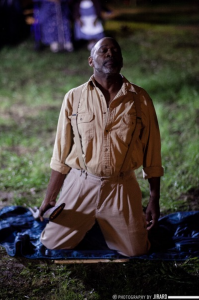
You attended NYU’s Tisch School Of The Arts. What made you choose that school? What was the application process at the time of your attendance? What was the best lesson you learned at Tisch?
At the time I was growing up in New York, the two actor training programs which drew a lot of attention were New York University and Juilliard. That’s not to say there weren’t other training programs in New York and across the country which offered quality actor training. However, very few training programs shined as bright as those two. The audition process was made up of performing two contrasting monologues, a classical and a contemporary. If you made it past the first round of auditions you were invited back, at the callback, you would perform the speeches again for other faculty members. It could be a bit nerve wracking as no one in the room really said anything, there might be a head nod or two, if you were lucky, possibly a quick smile coming your way but other than that, the looks were largely deadpan. Sometimes you were given an adjustment by the initial faculty member (in my case, the Head of the Training program) which you were asked to incorporate in your second audition.
All I truly remember is how much I wanted to join NYU’s training program. I knew of its reputation and quality. And aside from the NYU School of the Arts, the school and the its other programs (Law, Medicine, etc.) were identified as one of the best schools in the country. I mostly relied on my preparation to get through the audition. I had chosen two monologues I really enjoyed and loved performing (I even had back up speeches in case they wanted to see something else). In the end, I guess I did alright as I was accepted into the school and had three transformative years there.
What is a treatment?
Typically, a treatment (used mainly for feature film or television) is a one page synopsis of the story being told. A treatment might include a specific style the show will be shot in. It describes character, plots and locations which are integral to the story being created. Treatments are used to sell shows to a studio, network, production company. I’ve been involved with reading/presenting a few treatments to Network Executives as a more interest way to showcase a treatment than them just dryly reading the material.
You played Reverend Daniels on the HBO hit series True Blood. Please share some behind the scenes stories.
Well, it was serious work, however, you just to have fun on a show which featured Vampires, Witches, Shape Shifters, Werewolves, etc. The imagination which went into creating these characters and the various crafts which pulled them together (hair, make up, prosthetics, etc.) was impressive. I was secretly jealous and longed to be a Vampire or a Werewolf myself. Revered Daniels was no doubt a sensitive and passionate Minister, however I wanted to be some supernatural creature (what can I say? Vampires just have more fun). I remember shooting exteriors on an extremely cold night up in Canyon Country or thereabouts. It was so cold that as soon as a take was over, Assistants rushed to place down filled coats over us and to give us hot packs for our hands. Well, one of the actors had to shape shift into a Werewolf or something akin to it. This required him to at least begin the shot taking off all his clothes as he shifts into the creature — did I mention how cold it was? And of course, we needed multiple takes of his transformation. Needless to say, I was never happier to NOT be a creature on that frosty night and to be able to keep on all my clothes.
On another occasion, there was a scene involving a picnic between the denizens of the Southern town we live in ( there were some friendly Vampires in attendance, the picnic was at night). I recall the picnic group was to be viciously attacked by a group of hostile Super Vampires (kind of genetically altered or engineered hybrids), well, all hell breaks loose, people are running for their lives, blood is being shed all over the place and bodies are falling everywhere. I recall I was blocked to jump over a number of obstacles searching for my wife, it was actually loads of fun, sort of controlled chaos. Between the screams, blood and repulsive super vampires, I has a blast.
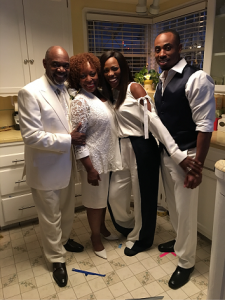
You’re the Artistic Director of the Los Angeles-based Lower Depth Theatre Ensemble. What exactly does an Artistic Director do? How did this position come to be? How do you have time for this when you’re busy on a big / little screen job?
An Artistic Director is there to provide the creative vision for a theatre company. The A.D. often chooses the plays and playwrights the company will work with for the season — they select the designers, actors and even the staff working alongside them. They’re responsible for making sure the highest quality of work is being showcased by the company. The A.D. might also direct one or more of the plays in the theatre’s season. Since I come from a strong theatre background, I was lucky to connect with like minded individuals when I arrived in Los Angeles. These individuals also had their beginnings by performing on stage and wanted to continue that discipline. There were many up and coming designers, actors and playwrights I wanted to work with, hence the need for a theatre company.
Since I’ve been working in the industry for decades (boy, does that sound weird, seems only yesterday, I started), I’ve learned how to divide my time and implement safeguards to put into effect in case I get work while directing a play. Those safe guards include having a very good Assistant Director who can step in for me if I’m gone for a sort period of time, giving the Casting Director my conflicts ahead of my being booked to share with the Producers. If they really want to use you for the role, they often find a way to work it out.
Please check us out and sign the company’s mailing list: Lower Depth Theatre.
You’ve directed several plays including the drama Fences, and Lombardi, which is based on David Maraniss’ biography When Pride Still Mattered: A Life of Vince Lombardi, written by Eric Simonson. You were awarded Best Director of The Year by Stage Scene LA. What techniques do you use when directing? Did already being an actor help you with directing? How so? How did you learn to direct?
Directing is always an exercise in patience. The process of working creatively with designers, actors and a crew means not only allocating sufficient time for everyone but also inspiring them as well. Collaborating with talented artists means listening to ideas although they may differ from your own. While a director must come in with an overall vision for the material, you must also leave yourself open to other influences as well. I’ve learned to trust my instincts but also to alter my vision with input from others.
Initially, I was interested in only training as an actor. However after spending my formative years working in regional theaters across the country, I was slowly pulled to the craft of directing. I began asking questions of various directors that had more to do with the entirety of the production rather than solely focusing on a single role. Thank goodness, I worked with very generous directors who acknowledged my interest and encouraged me to pursue it. By the time I embraced wanting to be a professional director , I had a wealth of experience doing theatre seeing productions and talking to Directors I greatly admired. I enrolled in Directing courses at UCLA’s extension program for two years. I traveled to Italy to take part in the LaMaMa’s Director Symposium for a summer working with luminary Directors like JoAnne Akalaitis and Anne Bogart. I know many actors who have eventually branched out into producing, writing and directing. As you mature, you hopefully begin to discover there are other talents you have which I feel should be pursued. I discovered that being a Director actually made me a better actor. The pictures I see in my head the, values of a scene I sure with my actors all resonant and feed my work as an actor.
Let’s talk about the Williamstown Theatre Festival. Why is the WTF so distinguished? What is it about WTF that draws actors from around the globe? How did you become involved with WTF?
Williamstown was actually my first acting job. I wasn’t even a member of the Actors Equity union at the time I joined them. I graduated from NYU in June and a few weeks later I was on a bus heading up to the beautiful Berkshire mountains to join what was then known as the Williamstown Theatre Festival’s Second Company. Nikos Psacharopoulos, the legendary co-founder of the festival and brilliant Stage Director came to NYU to personally hold auditions for candidates for the Second Company. It was rather a fun if not silly audition. He had me recite a soliloquy from Shakespeare while literally jumping up and down and running around the room. I think he wanted to see how free and available I was with my voice, body and in my craft. I thought it would be a much more austere audition, after all the company had a reputation for doing European and American classics. However, in the end, it was just pure fun which led to my being invited to join the summer festival. The company was made up mostly of recent graduates from various conservatory training programs (although there were a few professionals mixed in.) We had actors from Juilliard, Yale, etc. all of us were recent graduates starting our careers. It was a magical time. We all shared a lovely house in the woods with separate rooms. I recall at the end of the run of each show, we threw a party for the entire festival at our home. We worked on six plays during that summer and toured them at various venues in the Berkshires, some places were equipped with a theatre, in some places we had to create our own performing space. It’s fair to say we were fully immersed in the mechanics / craft of making theatre. And if you still needed a bit of inspiration, you only had to visit the Williamstown Fesival’s Main Stage where you would see the likes of Frank Langella, Blythe Danner, Olympia Dukakis (one my instructors at NYU by the way) etc. all up on stage performing.
What advice do you have for people who want to begin a career in acting?
It all comes down to pursuing and remaining faithful to your dreams. This is not an industry for the faint of heart, the rejections you will receive is all part of the journey. If you’re truly a story teller, (which is what all of us in the entertainment industry are), then commit yourself to telling your story and don’t be daunted by the obstacles. There will be individuals along the way who will help to further the pursuit of your dreams, make sure you treasure those people. And in contrast, there will be individuals along the way who will be naysayers to your growth and career, you should avoid those individuals like the plague. Surround yourself with a supportive team of friends and family you trust and who have your best interests at heart. Stay healthy, positive and have faith that the journey will ultimately lead to the accomplishment of your goals.
My advice to young actors is that, in order to have a long career, you need to be as versatile in your work as possible. The ability to act in sitcoms, soap opera, episodics and feature films comes from training, talent and experience. Always find ways to exercise your instrument whether it’s in a formal training program or ongoing classes, a student director’s thesis project or performing in a stage play. The more versatile and flexible you become with different types of material the more likely you’ll be seen for projects and the more likely you’ll achieve your big break. And speaking of the “big break”, most of the successful actors I know especially when they become “celebrities” have been working at their craft for a very long time. In other words, there wasn’t so much as a single big break as a series of ongoing, solid work they created over a period of time. Young actors need to be tenacious, resilient and above all, have faith in yourself. Don’t wait on a single big break but treat every project you’re involved in as something that could be the big break.
Anything else you’d like to say?
I’d like to strongly urge everyone to stay safe during the unprecedented health crisis we’re facing. Practice social distancing, stay at home, follow CDC guidelines and wash your hands frequently. We will get thru the Covid-19 pandemic, however the only way we can overcome this is by looking out for each other. There’s never been a time when good will, common sense and caring for your neighbor is so vitally important.
You can follow Gregg Daniel on Twitter.
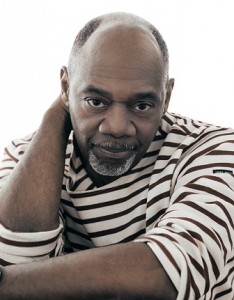
BIOGRAPHY:
Actor/Director Gregg T. Daniel is best known for his role as Reverend Daniels on HBO’s True Blood. With over 100 credits in film and television, Gregg’s roles span the spectrum from comedy (Curb Your Enthusiasm, Weeds) to drama (The West Wing, Castle, Desperate Housewives) to procedurals (NCIS), science fiction (Star Trek: Voyager) and children’s shows (Austin & Ally, Kickin’ It). Big screen credits include Spiderman 3, Hancock, Mars Attacks, Evan Almighty, Pump Up The Volume, and White Men Can’t Jump. Currently, Gregg has been in True Detective (2015), will appear in the 12 th season of ABC’s Grey’s Anatomy and will star in the upcoming Civil Rights film Jerico. An accomplished theatre director, Gregg is the Artistic Director of the Los Angeles-based Lower Depth Theatre Ensemble, and was nominated for a 2013 NAACP Image Award for helming the Los Angeles production of Kwame Kwei-Armah’s Elmina’s Kitchen, which also won the NAACP Award for Best Ensemble for 2103. Prior to that, his stage direction included 2009’s acclaimed production of Tom Stoppard’s Heroes, Sybyl Walker’s Beneath Rippling Waters, Lee Blessing’s Cobb, and Frank McGuinness’s Someone Who’ll Watch Over Me. Recently, he directed Alice Childress’ The Wedding Band (ovation recommended play) Fences and Lombardi (based off of the life of Vince Lombardi.)
A trained theatre actor from NYU’s Tisch School of the Arts, Gregg stars as Lord Montague in Shakespeare Center of L.A.’s production of Romeo & Juliet this summer. Previous stage acting credits include the Williamstown Theatre Festival (Back Country Crimes, Gogol), The Mark Taper Forum (Joe Turner’s Come and Gone), the Pasadena Playhouse (Jitney), Actors Theatre of Louisville (Master Harold), Hartford Stage Company (Peer Gynt), and South Coast Repertory (Fences, Death Of A Salesman).
A native of Brooklyn, NY, Gregg Daniel resides with his family in Los Angeles. He is passionately attached to Cage Free Canine that advocates for dogs to not be locked up in breeding centers. On his spare time, he plays jazz guitar.

